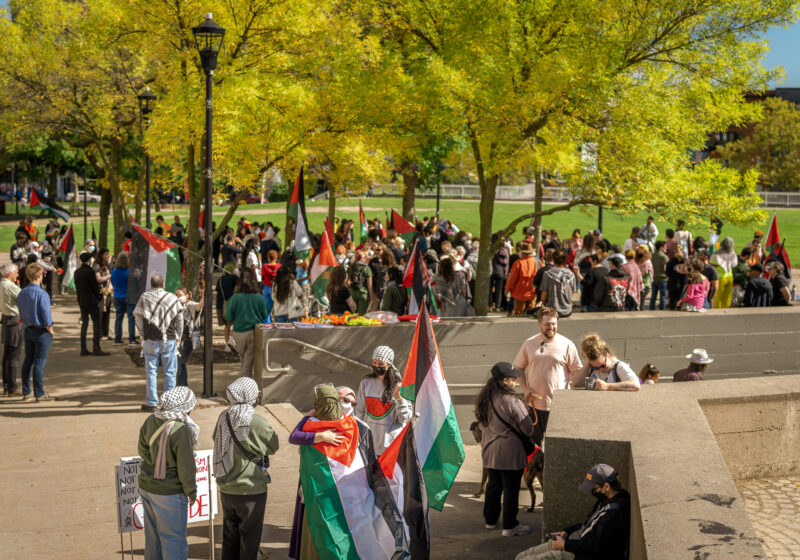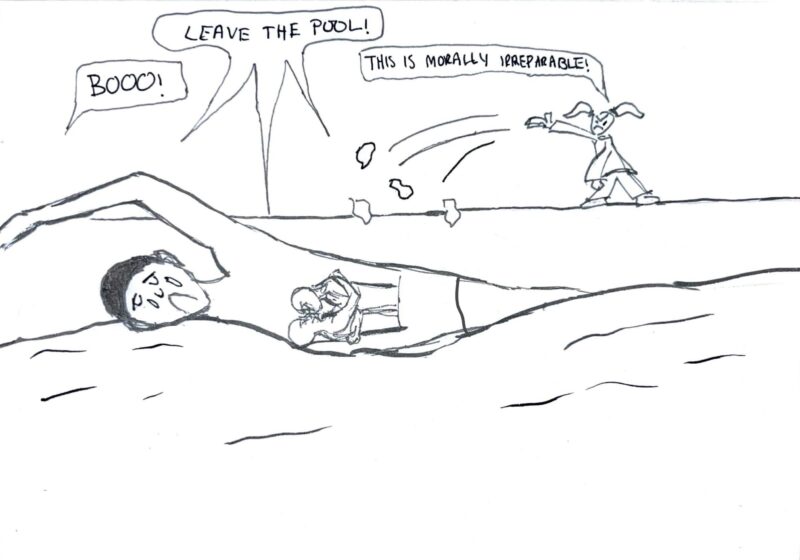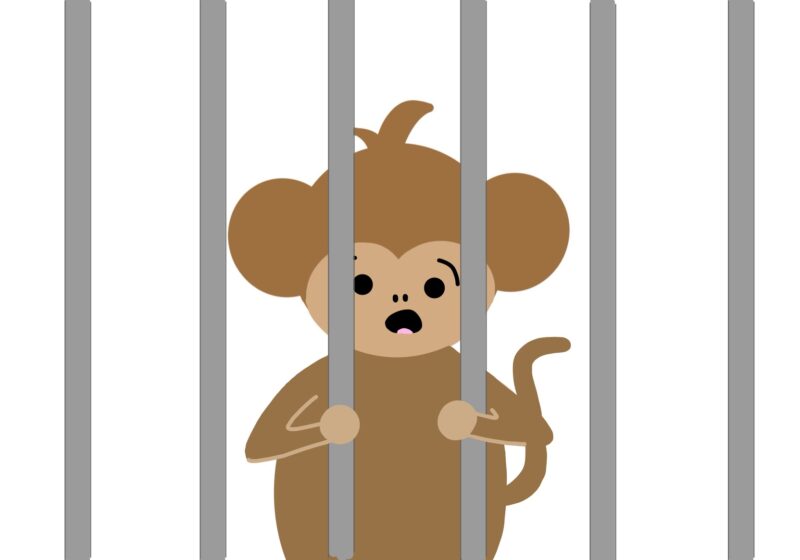Protests and commemorations were nationally held on Saturday, Oct. 5 to observe the anniversary of the war waged in Gaza by Israel and Palestinian resistance since Oct. 7, 2023. Several organizations, such as the Rochester Committee to End Apartheid and Students for Justice in Palestine (SJP), sponsored one in Downtown Rochester’s Manhattan Square Park. They planned this protest almost immediately after the Palestinian Youth Movement (PYM) issued the nationwide call for action, according to Jonathan Khoury, an organizer with the Rochester Committee to End Apartheid.
Community members of all different faiths, colors, backgrounds, and occupations gathered. Per junior Sarah Aljitawi, the ceremony began with a vigil whose purpose served “not only as a commemoration of the lives lost but also a call for justice and healing.”
Aljitawi said that every life lost in Gaza is not a mere statistic but a unique tale of unfulfilled hopes and destroyed possibilities. A collective life of culture and resilience, among other things, has been targeted and profoundly affected. She shared her sorrow for the Palestinians in the West Bank, the Palestinians and citizens of Lebanon, and the Palestinians in the U.S. and around the world who have been targets of hate crimes and acts of violence.
Khoury also reaffirmed that the Palestinians are not statistics and that we will never learn the intricacies of those lost — their aspirations and anxieties, to name a few.
To remember the lives lost, several speakers read a list of Palestinians killed in the ongoing genocide, starting with infants. After each name, protestors shouted, “We remember!” placing flowers and signs on nearby steps to create a tribute.
With the remembrances came the reminder of faith, displayed by members of the three Abrahamic religions to share their prayers and poems.
Junior Mowaz Syed Alvi was the first to offer prayers asking the Lord to protect the Palestinian people, hide their shortcomings, and provide them endurance and rewards in this life as well as the next.
“Our Lord, pour upon them patience […] they are helpless, so help them,” he prayed before handing it over to Rev. Dr. Richard Myers.
Rev. Dr. Myers, the Pastor Emeritus of Immanuel Baptist Church of Rochester, preached the importance of faith and the realization that we are not isolated at this moment. Instead, he said, we are part of a greater global community, fighting the same fight.
Juniors and Jewish Voice for Peace (JVP) members Miller Gentry-Sharp and Nora Goodman concluded the prayers.
Gentry-Sharp described his feelings of repentance and healing on that day, the second day of Teshuvah, a time for repentance.
“Only when the genocide ends, only when Gaza can be rebuilt, and only when every child born in Palestine knows peace, knows justice, and knows self-determination,” he said. “Only then can we begin to repent.”
Gentry-Sharp then delivered a poem called “We Remember Them,” and Goodman recited an interfaith and non-denominational prayer of the Mourner’s Kaddish.
“May the Life and Love between us and within us be strengthened,” she prayed. “The One who makes peace in the farthest reaches of Creation will bring peace to us and to all living beings.”
Following the vigil, protestors marched around the city, chanting phrases such as “Biden, Biden, you can’t hide, we charge you with genocide,” “Not another nickel, not another dime, no more money for Israel’s crimes,” and “Gaza, Gaza, don’t you cry, we will never let you die.”
Protestors then attended a panel discussion with Iman Abid, Director of Advocacy at the U.S. Campaign for Palestinian Rights; Halima Aweis, another organizer with the Rochester Committee to End Apartheid; Khoury and Aljitawi.
Khoury explained that he has no cause to think that a two-state solution will lead to anything other than the same occupation, apartheid, and genocide that has happened in the past.
“The last 76 years are a testament to our failed two-state solution,” he asserted. “This is the world’s best attempt to create a two-state solution, which will always be predicated on stolen land from Indigenous people.”





